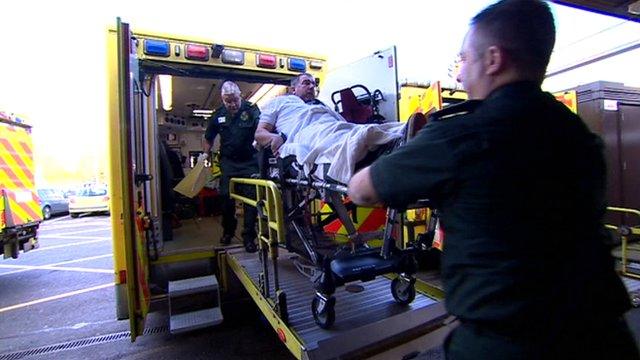Welsh Ambulance response times drop slightly
- Published
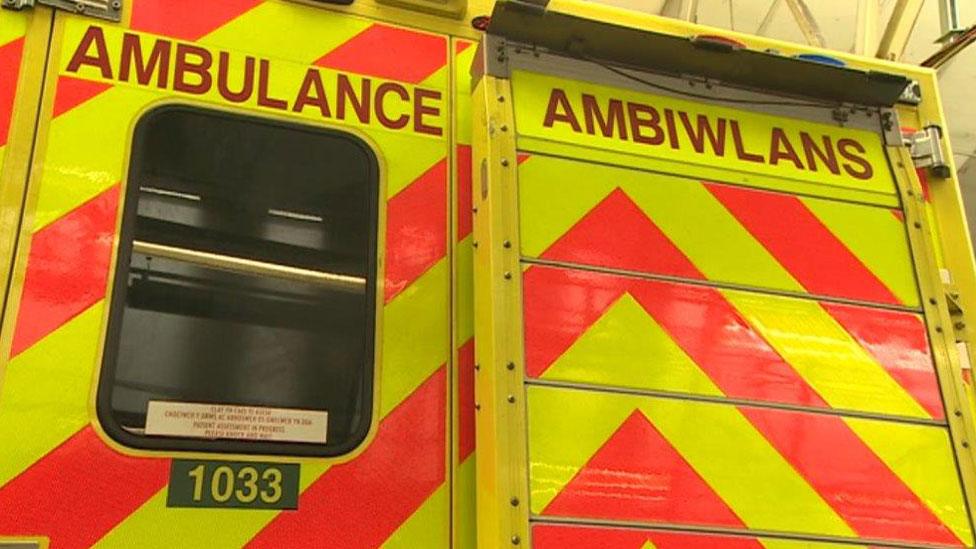
The median response time to red calls was four minutes and 55 seconds in December
Ambulance emergency response times to the most critical 999 calls fell in the last month - but are still well above the target.
Latest figures for December , externalshow 75.8% of responses to red calls arrived within eight minutes.
This is down from 78.9% in November 2016 but above the target of 65%.
The Welsh Ambulance Service also received the highest average daily number of calls on record - 1,344.
During December 2016, the service received 41,668 calls which was 7.4% up on the same month in the previous year.
Calls are graded red, amber or green and the most urgent or life threatening calls made up 4.8% of the total or 2,010 red calls.
The 75.8% response rate was better than the 72.4% which the service achieved in December 2015.
Performance ranged from 67.6% in the Hywel Dda health board area to 84.4% in Cardiff and Vale.
But average response times for less critical amber calls lengthened by over three minutes between November and December as demand increased.
There has been a general improvement in ambulance response times to the most critical calls since a new "clinical model" came into force in October 2015
Before an eight minute target applied to around 40% of calls received by the Welsh Ambulance Service.
Now the eight minute target applies to just 4% to 5% of the most critical calls, received for example if someone is unconscious and not breathing.
Meanwhile, ambulances are reaching more life or death incidents despite an increase in calls, according to another set of quarterly figures.
The NHS's Emergency Ambulance Services Committee looks at 24 different quality indicators, external - not just time but the quality of care patients receive.
Figures for December show in 53.9% of cases, ambulance staff handed over patients at the hospital within 15 minutes of arriving and in the last three months of the year, 14,199 hours were lost due to handover delays.
'Real scandal'
Plaid Cymru health spokesman Rhun ap Iorwerth AM focused on the percentage of patients who received the appropriate care at the scene.
"The figures are very concerning for patients with ST-Elevation Myocardial Infarction (Stemi) heart attacks and hip fractures, with a significant number of patients not only waiting longer for the ambulance to arrive, but not receiving the appropriate care bundle when it does arrive," he said.
"This is then made worse by almost half of patients having to wait longer than 15 minutes before being handed over to hospitals."
Conservative health spokeswoman Angela Burns said there was a "real scandal" of the Welsh Government moving the goalposts on how it measures ambulance response times to give the impression of good performance.
"Under the new model, just over 4% of ambulance calls are time-targeted," she said. "This betrays an incredible lack of accountability, particularly where conditions such as heart attack and stroke depend on the speed of treatment".
A Welsh Government spokesperson said it was testament to all those working in the service that the average response time to the most serious calls was under five minutes despite record levels of activity.
"Over 1,300 calls were made on average per day to the ambulance service last month, the highest daily rate recorded and an indicator of the pressure NHS staff have been under over recent weeks," said the spokesperson.
"There is more work to be done by NHS Wales to reduce patient handover delays and longer waiting times for non-life threatening calls and we continue to monitor the situation closely."
- Published23 December 2016
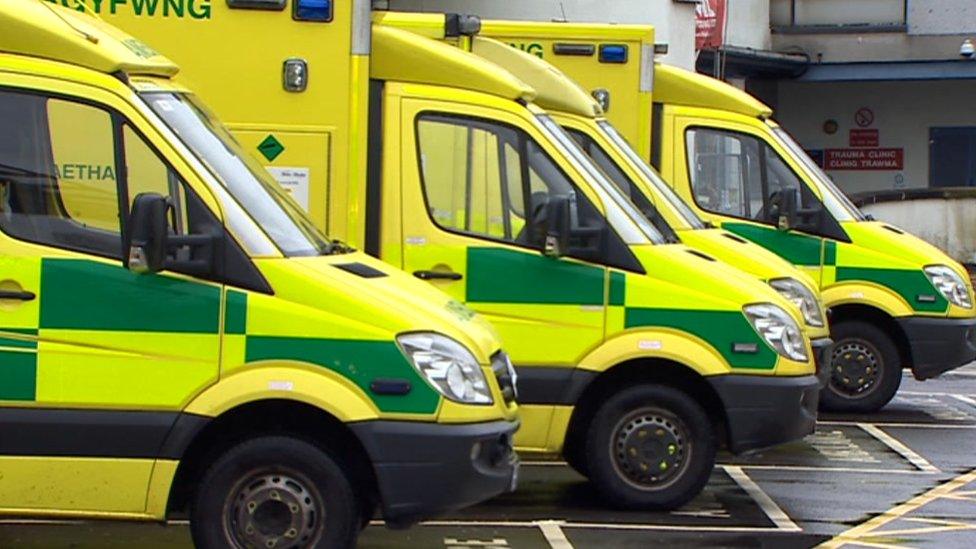
- Published18 December 2016
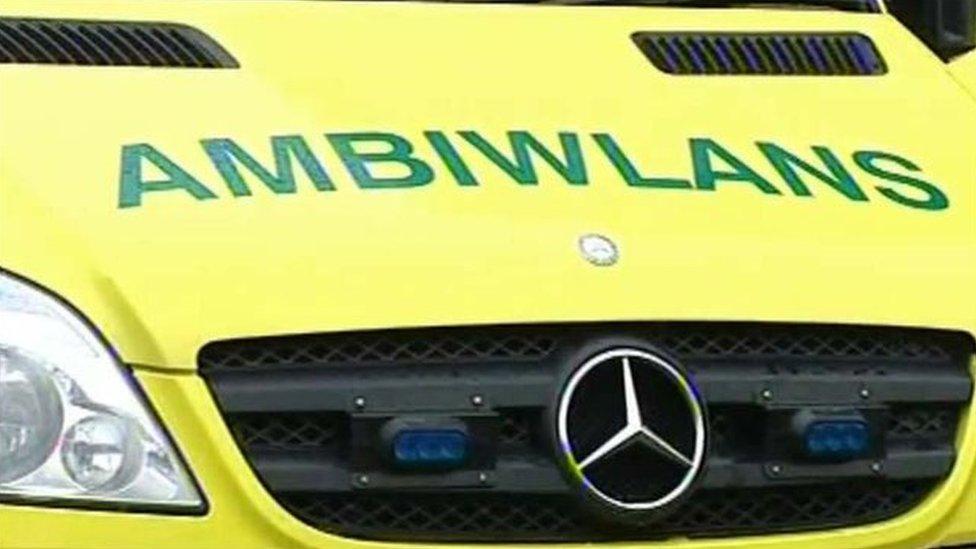
- Published30 November 2016
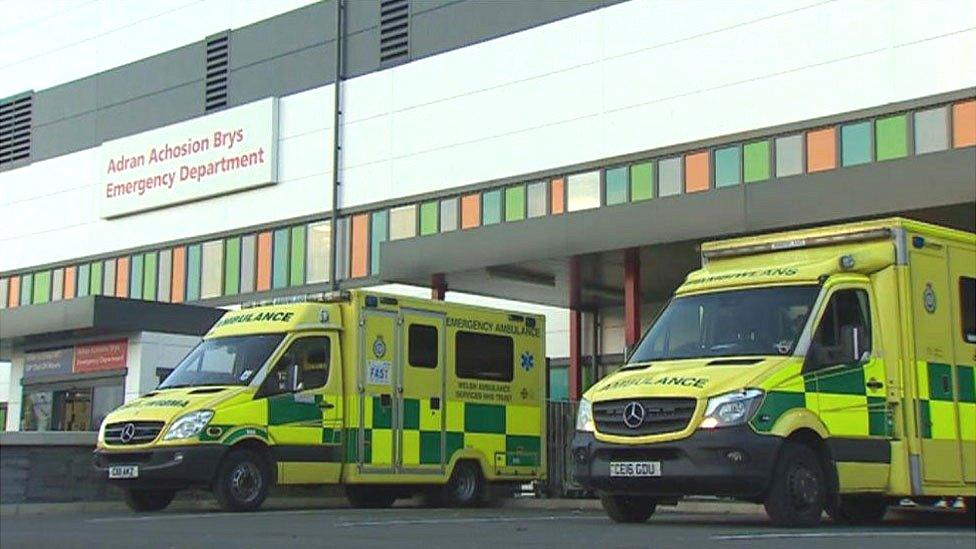
- Published29 July 2015
